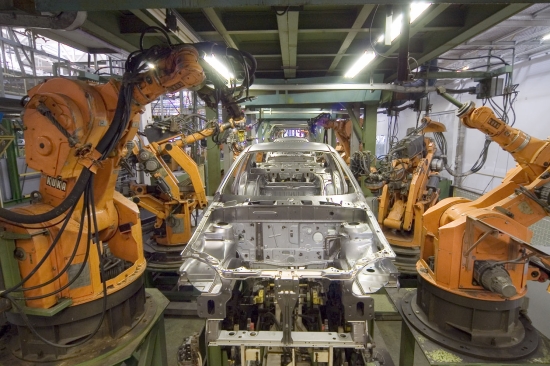
Are Robotics the Future of the Manufacturing Industry?
People once expected that robots would replace humans in the workforce. While human jobs haven’t gone extinct, companies are learning how to use robotic technology to their best advantage to improve manufacturing processes.
The concept of using robotics in manufacturing suffered for many years from a perception that it was too expensive to be viable, and for that reason its use was confined mostly to the largest companies. But as the benefits of using robotics started to become better known, smaller companies saw the ways that it could work for them, too.
Problem Solving
Businesses often get started from just a spark of an idea. You think of the perfect product that you’d like to offer, and you know that other people would want it, too. Problems often come in once you start thinking about how to mass produce the product, though. Any type of smaller scale, conventional manufacturing processes are likely to seem too inefficient or difficult. That’s a good time to start looking at robotics to create a solution. Automation can make the impossible seem possible again.
Robots to Help Avoid Outsourcing
Many businesses have participated in the trend of outsourcing labor to other countries where work can be done more cheaply. However, both labor experts and ordinary citizens alike have concerns about this process. Although investing in robotics doesn’t necessarily bring jobs back, the MIT Technology Review says that it can enable companies to stay economically competitive without outsourcing labor to foreign countries. Using robotics can help manufacturing stay in or return to this country, which is a key component in rebuilding the manufacturing base here.
Solve Labor Problems
Manufacturers of high-tech products sometimes have difficulty finding the highly skilled employees that they need. There’s often a mismatch between the skills of available workers and the work that needs to be done. According to the DCR Workforce Blog (Sorry! This blog is gone!), new automation has intelligence comparable to the human brain and can solve those workforce shortages. Robotics can also perform tasks that can be dangerous for humans, without the risks from heat, repetitive strain or lack of precision. While human employees can be retrained for new jobs within a manufacturing facility more easily than robots can, human capital is much more limited in capacity. Strain and fatigue can lead to manufacturing errors, and busy periods of work can require additional labor costs for overtime pay. Robotics help to avoid many of these problems.
Cost Efficiency
Robotics are an extremely cost-effective solution for manufacturers. According to Lehigh Valley Business, the cost of robotics is often very reasonable compared to the benefits the machines offer in adapting to changing workflow needs. Labor needs fluctuate throughout the year, which can be very inefficient in terms of keeping trained staff on hand. It can be difficult to train new employees quickly enough as the need arises, and the need for the extra labor isn’t always consistent year round. Robotics enable manufacturers to adapt to changing demand quickly and easily, which can ultimately save a lot of money.
Not every manufacturing task is suitable to be handled by robots, of course. Robots don’t adapt as easily to changes in manufacturing process, and cannot improve over time. Humans will still be required behind the scenes to make sure the robots are used effectively. However, manufacturers looking for new solutions to stay competitive are likely to find that robotics are a very useful tool that is worth serious consideration.
Author Nicole writes about anything to do with the manufacturing industry. She loves researching and learning about how things are made and what makes things work. In her opinion, Statewide Ball Bearings offers the best bearings on the market.

